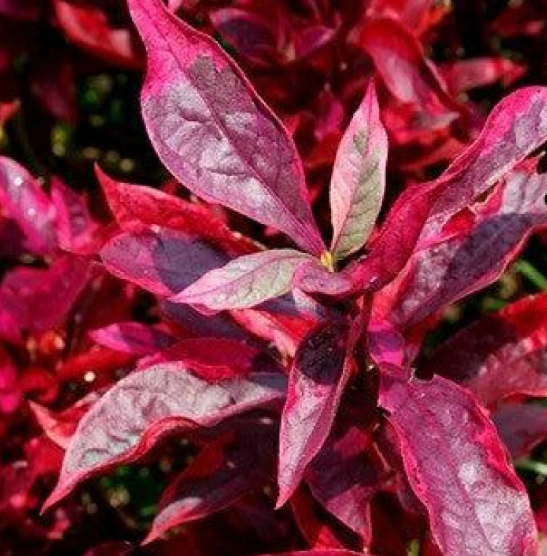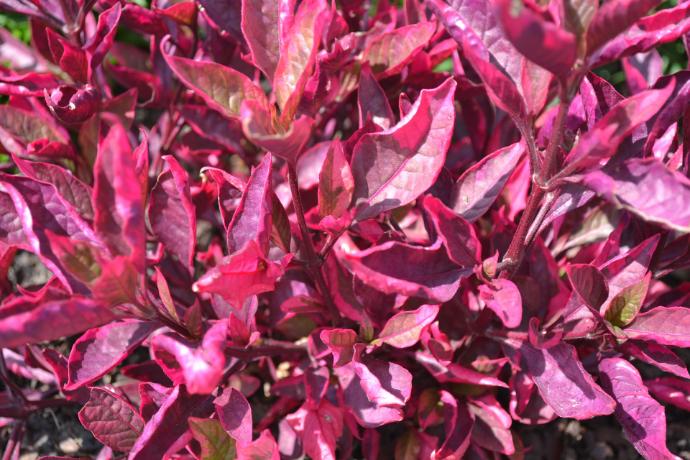Alternanthera Red Plant
| Alternanthera is a fast-growing groundcover plant, thrives in partial shade and well-drained soil, requires moderate moisture, and is not edible or medicinal. |

Habit
Herbaceous
Height
0.5-1 ft
Growth
Fast
Soil
Well-drained loamy soil
Shade
Partial to full sun
Moisture
Moderate to high
Edible
No
Medicinal
No
Origin
South America
Climatic Condition
Tropical, Humid
Temperature (°)
20-30
Humidity (%)
60-80%
Potting media
Peat+Perlite
Fertilizers
Balanced NPK(10:10:10)
Watering
Regular Watering
Plant Weight
100-150 g
Flowering Time
Summer to Fall
Soil Ph level
6.0-7.0
Water Ph level
6.0-7.5
Soil EC
1-2 dS/m
Yield Per Plant
NPK ratio
10:10:10
life Span
1-2 yrs
Health Benefits
Suggested Grow Media or Potting Mix ?
40% loam, 30% compost, 30% peat moss
Suggested Fertigation/Fertilizers
Fertilize regularly during the growing season with balanced fertilizer.
Common Diseases and Remedies
Leaf Spot, Root Rot, Powdery Mildew, Aphids, Mealybugs.
Yellowing, browning edges, white fungal coating.
Neem oil, compost tea, improve soil drainage.
HEALTH BENEFITS
Alternanthera red, also known as Alternanthera brasiliana, is a vibrant plant often used in ornamental gardening. While it’s primarily appreciated for its striking appearance, it also has some potential health benefits, especially in traditional medicine in various cultures.
Here are some of the potential health benefits associated with Alternanthera red:
- Anti-inflammatory properties: The plant is believed to have anti-inflammatory effects, which may help reduce swelling and pain in the body.
- Antioxidant effects: Rich in compounds that act as antioxidants, it may help protect the body from oxidative stress, reducing the risk of chronic diseases related to free radicals, such as heart disease and cancer.
- Digestive support: Some traditional uses suggest that Alternanthera can support digestive health by improving gut function.
- Wound healing: The plant is sometimes used in folk medicine to treat minor wounds, cuts, and skin irritations due to its purported healing properties.
However, it's important to note that more scientific studies are needed to confirm these health benefits. Always consult a healthcare professional before using any plant or herb for medicinal purposes.

